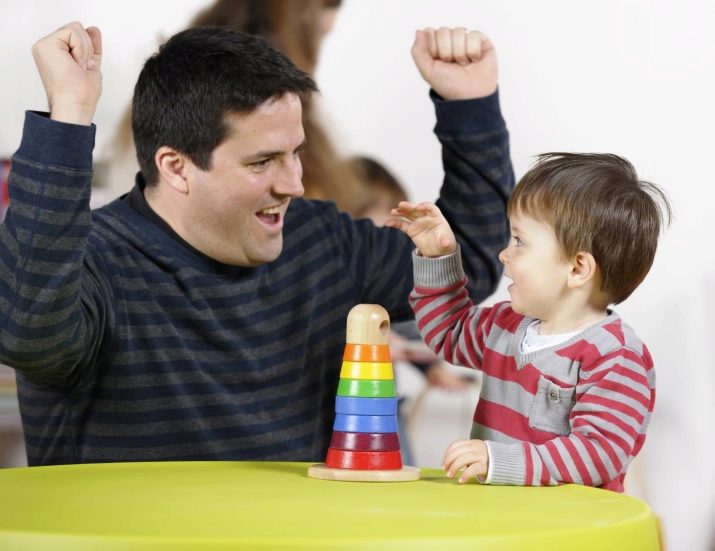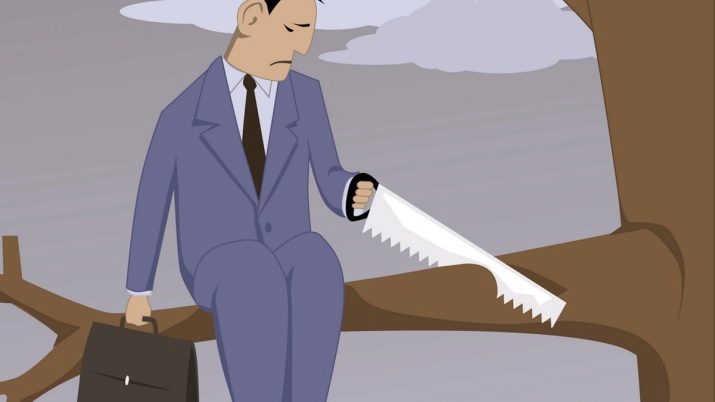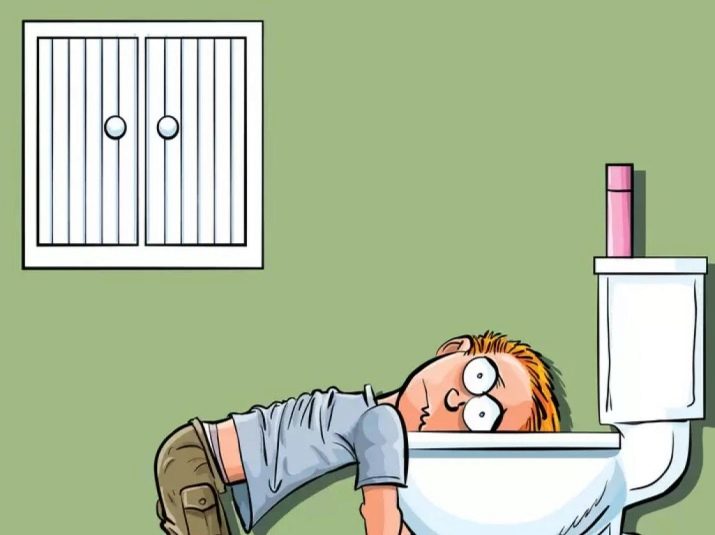Atychiphobia: description and treatment

To a certain extent, each of us needs recognition of merit and success. And thoughts about a possible defeat, an unsuccessful outcome of any business cannot be attributed to pleasant ones. But there are people who fear of failure forces you to abandon business and undertakings altogether... Such people are called atiphobes.

What it is?
Atyphobia is pathological irrational fear of failure... This mental disorder got its name from the Latin atyches - "unhappy" and the Greek φόβος - "fear". This disorder is considered one of the most common in the modern world, but despite this, only a small part of atychiphobes comes to psychotherapists and psychiatrists to receive adequate treatment. The rest habitually write off what is happening on their own character.
In all situations where there is even the slightest hint of competition as such, people with atychiphobia see a close connection with danger, they believe that they will definitely fail and outlive their fiasco in advance.

As a result, in order not to experience it in reality, the atihphobe refuses to participate in this matter, and therefore achieving success in life becomes an unrealistic goal for him.
A person is not confident in his strengths, knowledge, abilities, capabilities, and therefore prone to depression and the emergence of more severe mental pathologies. Atyphobia is considered a destructive phobic disorder. It is capable of not only completely destroying a person's life in its various aspects, but also causing irreparable harm to his health.Against the background of the constant expectation of failure, many begin to use alcohol and drugs in order to relax at least temporarily, stop thinking about the prospects of their own defeats and mourn the missed opportunities that the person did not dare to take while there was a chance.
This phobia by specialists belongs to the category of social. In childhood, we all expect praise from our parents for a beautiful drawing, a successfully completed craft, and grades at school. As we grow up, the need for praise does not diminish, and at some points in our lives it can be exacerbated.

If from childhood it was difficult for a person to achieve praise (he was more often criticized), then with a high degree of probability in adulthood he will have a rather pronounced low self-esteem.
It is she who lies at the heart of his fear of not becoming the best, of failing. A healthy person is distinguished from atihphobe by the ability to philosophically treat defeat. People with such a mental disorder cannot judge the situation sensibly, painfully experiencing even their insignificant mistakes. The mere thought that the failure may repeat itself causes panic, terrible excitement in the atichiphobe, it is difficult for him to cope with these emotions.
Excitement in front of his possible (not yet happened) failure forces a person to diligently avoid any situations related to competition. - admission to a university, job interviews, participation in creative contests and sports competitions, and even from the prospect of creating a close relationship with a loved one, the atihphobe will immediately refuse if a rival appears on the horizon.

Varieties
Of all types of phobic mental disorders, it is atychiphobia that has the largest number of forms in which it can be observed, that is why it can be so difficult to recognize a true atichiphobe.
- Self-elimination and self-isolation - with this form, the atihphobe refuses to participate in any events that imply competition (does not go for an interview, refuses to participate in a variety of events and projects, any, even minimal, possible obstacles to achieving the goal become insurmountable).

- Self-sabotage - the fear of failure has the form of a persistent conviction, confidence that everything will end badly. The patient does not refuse to participate in the events, but tries to do everything on a subconscious level so as not to achieve a positive result.
Then he says that he "knew it." The assignments that such atychiphobes receive are usually carried out for a very long time, they are diligently drawn out, the person reaches the point of absurdity and begins to show signs of incompetence.

- Immobilization - in this form, atychiphobia is accepted by the patient as a character trait. He does not fight, does not seek to overcome his insecurity, he does not act and answers all questions from the outside: "Yes, I am." These patients tend to withdraw into themselves, they do not develop, do not grow professionally and personally.
They tell themselves that they have no ability and were the last in line when God was distributing talents, but they didn’t have enough.

- Perfectionism - a person really wants to be the best, but he is afraid to fail, and therefore he is forced to make a lot of efforts in order to prevent even theoretically any erroneous or reckless actions. The desire to be the best becomes an obsession. Any business for which such an atihphobe is taken turns into stress for him., since he throws all his strength to ensure that everything is done "to the point." True, with this form of phobic disorder, the patient never takes up a case from a sphere unfamiliar to him, limiting himself to one, the main sphere of activity.
For example, a successful programmer with perfectionism takes on the most difficult professional tasks, but cannot bring himself to overcome fear and take part in the "Fun Starts" at school with his own child. Or, for a woman who is a teacher of literature, it seems completely unacceptable to go on a weekend hike with her students, because she is simply afraid of being ridiculed.

All types of atychiphobia are inherent low self-esteem and high self-criticism.
Causes of occurrence
Psychology and psychiatry attach particular importance to the study of the causes of the development of fear of defeat. Given how widespread this phobia is, it is imperative to develop the most effective methods of care. Experts tend to believe that various reasons can cause atychiphobia, among which the leading place is taken by personal negative experience.
Failure experiences can be especially painful and traumatic for a person if they have a tendency to generalize. In this case, according to some single history or situation, a person begins to judge the phenomenon or event as a whole. So, having made a mistake once, having failed, a person concludes that he cannot do anything worthwhile at all, that his abilities are not great enough, that he lacks knowledge and skills, and, in general, he is a failure. This belief triggers a series of negative reactions, the desire to do something or achieve something is almost completely blocked.

Most often, according to the observations of experts, atychiphobia develops against the background of self-doubt, which is formed in many in childhood or adolescence.
First of all, low self-esteem can be influenced by parents, more precisely, by their attitude to the mistakes and failures of the child... If it is customary in the family to demand that the child be the best in school, sports, in a music school and a drawing studio, so that the child has the best grades in the class, then the child is in constant stress - it is not easy to keep up everywhere.
If in the family even success is taken for granted, due to which there is no encouragement, the child forms a distorted idea of his own achievements. For mistakes, perfectionist parents can be very scolded and even punished, and this is immediately reflected in the perception of oneself as incapable of achieving success.

Among the atihiphobes there are many who were laughed at by their peers in the collective.
Moreover, it is not at all necessary that the reasons for ridicule were actions and deeds, sometimes they ridicule personal qualities, character traits. This often happens in kindergarten collectives, at school, in sections and even in the first years of higher educational institutions. At any moment, against the background of strong dissatisfaction with himself, the victim of ridicule may develop a fear of failure.
More susceptible to fear impressionable people, suspicious, prone to anxiety.

Symptoms
Atihphobe is easy enough to recognize among other people. He is always anxious, very worried about important events. If you have to do something, agree to something, do some kind of responsible work, in addition to anxiety, an atihphobe experiences a whole range of vegetative symptoms. He has an increased heart rate, an unpleasant feeling in the abdomen, the skin becomes paler, and sweating may increase.
In a state of fear, atychiphobes often tremble hands, dilate pupils, pulse becomes fast, breathing becomes shallow. Many people note that pressing pains appear in the region of the heart. Some sharply become nervous, fussy, irritable, while others, on the contrary, fall into a state of stupor.
With the fear of failure, diarrhea, nausea, and insomnia are quite common symptoms.

For example, before an important exam or interview, the patient may lose sleep, he cannot get rid of an obsessive thought, scrolling in his head possible scenarios of the upcoming case in a negative light, diarrhea and nausea develop. An attack of atychiphobia differs from the usual excitement before an important event, which is characteristic of all people, primarily in that all manifestations are present on the verge of a panic attack, and panic attacks themselves are possible.
At the same time, the person understands that there is no reason to worry so far, because nothing terrible has happened yet, perhaps everything will be fine, but he cannot cope with horror, manifestations of atychiphobia do not lend themselves to volitional influence and control.

How to get rid of a phobia?
With this phobia, it is very important to see a doctor, since it is almost impossible to overcome this form of social pathological fear on your own. Seeking help is already a big step towards overcoming fear. Psychotherapist or psychiatrist initiating treatment with the establishment of a "child's history" - the patient is interviewed about his childhood, upbringing, about what and in what situations he was punished, how the person's relationship with classmates, classmates, representatives of the opposite sex was built. This helps to find the root causes of low self-esteem.
The doctor will establish how his patient himself relates to his failures and blunders, how things are with the presence of motivation to achieve success.

This will help special tests, as well as hypnotherapy, if a person cannot remember events from childhood, which may have led to the development of a phobic disorder.
Among the methods of psychotherapeutic treatment, a method for modeling situations. The doctor creates a description of situations that ended in complete failure for the patient. The patient's task is to describe in as much detail as possible all the nuances of sensations and feelings that he experienced during and after the defeat. Treatment is based on sincerity - if it is not there, then it will be very difficult to overcome the phobia, remove its manifestations.
Group classes are helpful, because communication with peers who are afraid of failure helps a person to look at their own problem from the outside in a calm atmosphere.

In the group, he feels support from other participants in the class and this is very important for him.
There is no medication to combat achyphobia. But the doctor may, at his own discretion, recommend antidepressants, if he notices that the patient has depressive moods and hypnotics for sleep disturbance.
During therapy, patients it is recommended to avoid stress, alcohol, drugs. They are encouraged to learn more about the biographies of successful people. Usually their victories were the result of many failures, which became the basis of such a valuable and important experience for victory.
See below for how to overcome your fear of failure.








